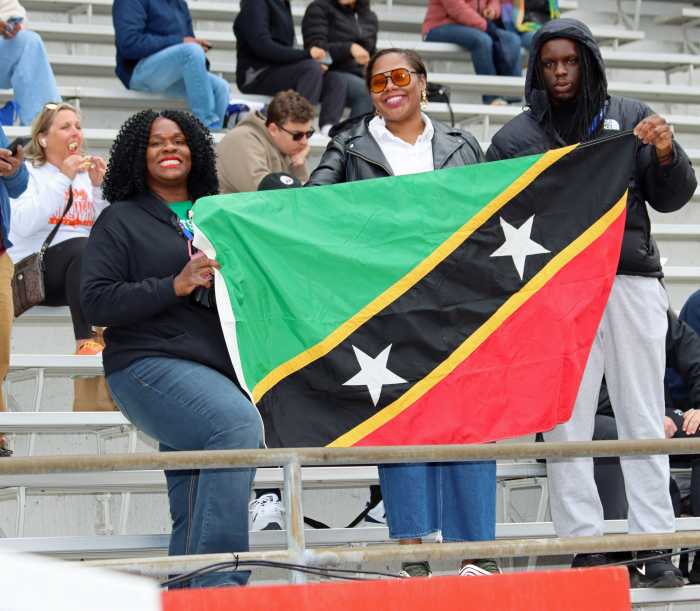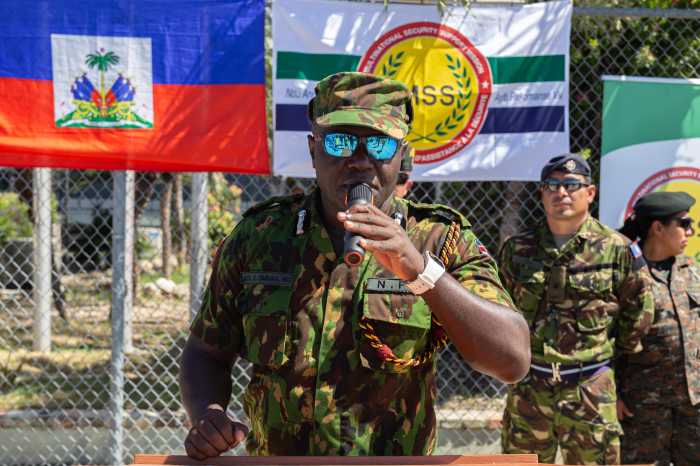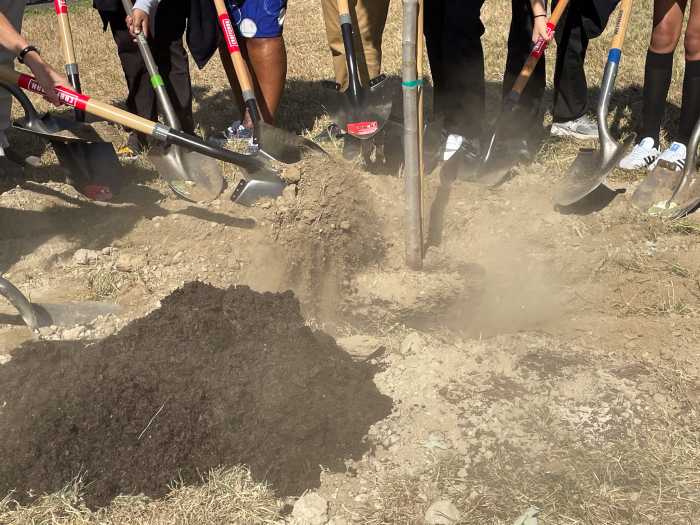Backlash from UK Prime Minister David Cameron’s dismissive attitude toward addressing the issue of reparations while on a visit to Jamaica seems to be galvanizing support from Caribbean leaders.
Last week, Prime Minister Timothy Harris of St. Kitts & Nevis joined the chorus championing discussion of the topic by declaring his government’s “unwavering support for the call for reparations for the atrocities of slavery.”
“It did irreparable damage to the psyche of the people who underwent that wicked system. In the consequence of that disadvantage there is a need now to help those societies that have suffered to get their development agenda fast tracked.”
The Kittitian leader said it was imperative to call on the countries that should be providing support to accept that slavery was an atrocity against humanity.
The twin island leader acknowledged that given the leadership in Britain, getting compensation will be difficult.
“I believe what we have to do is find the correct messaging. I believe it has been and will continue to be a difficult message for a conservative government in the UK to accept the notion of reparations if it comes packaged as compensation.”
PM Harris endorsed urgings from former Jamaican Prime Minister P.J. Paterson, Andrew Holness, opposition leader of the Jamaica Labour Party, CARICOM Reparations Commissioner and chairman Sir Hilary Beckles and the Guyana Reparations Committee to face the issue.
He clarified his position on the matter at a time when the topic is being feverishly debated and perhaps because the British leader told Jamaica’s government representatives to put the memory of slavery behind them and move on.
Jamaica’s Prime Minister Portia Simpson Miller did not elaborate on the statement made by the UK visitor but said: “The difficult issues of reparations which is being contemplated under the auspices of the Caribbean community” was never fully addressed.
On hindsight, it appears that the British emissary had his government’s agenda at the forefront of his mission and that was to inform the independent nation of a plan to help incarcerate Jamaicans by funding construction of a new prison in the capital city of Kingston.
Human rights activist and Hollywood actor Danny Glover blasted the dismissive saying he felt insulted by the response to the nation’s request for a conversation.
“To make such an outrageous statement is an insult.”
“If you don’t bring up the issue, the brutality of it, you don’t get a discussion around it “
The star of a series of sequels of action films billed “Lethal Weapon” and many box-office attractions called PM Cameron’s statement “outrageous.”
“It just shows his ignorance,” Glover said.
Invited to Jamaica by Sir Beckles, Glover is a frequent visitor to Africa, an advocate for civil and human rights and a relentless spokesperson for the cause of reparations from colonial enslavers. “I’m not holding out for the reparations,” Glover added, “but I think certainly that reparations provide an opportunity for us to organize in different ways around the question itself.”
Prior to PM Cameron’s arrival to Jamaica, The Guyana Reparations Committee dispatched a letter to the UK leader saying they fully support Jamaica’s National Reparations Committee’s call for the government of Jamaica to place the issue of reparations high on the agenda of bilateral talks when he made a state visit there.
This is what the letter states:
Our committee in Guyana hopes Prime Minister Cameron will be reminded of the United Nations Declaration in Durban, South Africa, in 2001, which stated:
“We acknowledge that slavery and the slave trade, including the transatlantic slave trade, were appalling tragedies in the history of humanity not only because of their abhorrent barbarism, but also in terms of their magnitude, organized nature and especially their negation of the essence of the victims; and further acknowledge that slavery and the slave trade are a crime against humanity and should always have been so, especially the transatlantic slave trade and are among the major sources and manifestations of racism, racial discrimination, xenophobia and related intolerance; and that Africans and people of African descent, Asians and people of Asian descent and indigenous peoples were victims of these acts and continue to be victims of their consequences.”
Indeed, with a survival rate of 15 per cent over three centuries of barbarity, the enslavement of Africans was a genocide still too large to be fully comprehended. Slavery was the world’s first nuclear bomb. It annihilated Africa, African culture, African family structures, African institutions, African commerce, African growth, African history, African pride and African economic development.
Today, the legacies are more glaring than ever. The wealth created for England from its colonies is well documented. So is the wealth created for the 46,000 British owners of enslaved Africans who received reparations at Emancipation, while the freed Africans were left in poverty, illiteracy, and with only the clothes on their bare backs.
Prime Minister Cameron’s visit to Jamaica is even more important in that 2015 marks the beginning of the United Nations International Decade for People of African Descent. His trip, therefore, offers the prime minister, and Britain, the opportunity to begin the process of embracing the truth of slavery’s historical beneficial legacies for Britain and, therefore, an equal opportunity for Britain and the prime minister to act decisively and morally to correct the world’s greatest legacy of brutality and criminal enrichment.
The world has heard the claim made by the CARICOM Reparations Commission. We in the Guyana Reparations Committee agree with this claim which asserts that the British government:
1. Were the owners and traders of enslaved Africans;
2. Created the legal and fiscal policies necessary for the enslavement of Africans;
3. Defined and enforced African enslavement and native genocide in its national interest;
4. Refused compensation to the enslaved with the ending of their enslavement;
5. Compensated slave owners at emancipation for the loss of legal property rights in enslaved Africans;
6. Imposed a further 100 years of racial apartheid upon the emancipated;
7. Imposed for another 100 years, policies that perpetuated suffering upon the emancipated and survivors of genocide, and;
8. Have refused to acknowledge such crimes or to compensate victims and their descendants.
Britain is still one of the world’s great powers and has the ability to lead by its actions. History will be the judge of this momentous occasion where a sincere apology and positive steps to find solutions can be made.
The Guyana Reparations Committee congratulates the Jamaica Reparations Commission of this bold step of Caribbean consciousness and looks forward to Prime Minister Portia Simpson Miller and Prime Minister David Cameron creating a global mission statement of truth and justice that will parallel the words of the Pope in his most recent trip to the United States.
Eric Phillips
Chair, Guyana Reparations Committee
Catch You On The Inside!


























